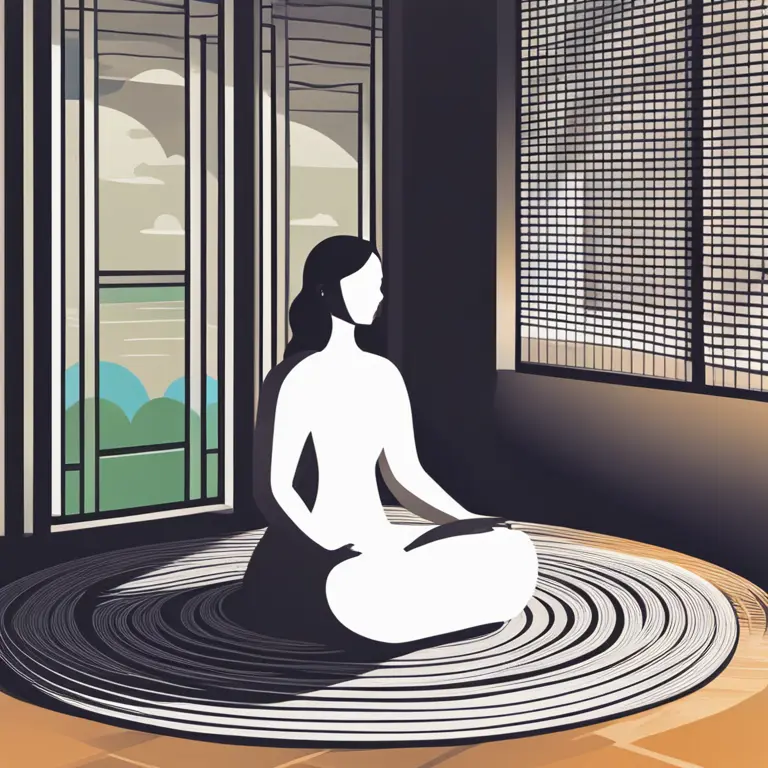
Serenity Sleep Meditation: Drifting Off With Ease
Discover a gentle meditation routine that can enhance your night's rest, fostering tranquility while you prepare to sleep.
article by Hina Kurosawa
Introduction to Sleep Meditation
In our fast-paced world, quality sleep has become a precious commodity. With the myriad of responsibilities and stimuli we encounter daily, tranquility sometimes escapes us as we prepare for slumber. Sleep meditation offers a calming solution to the often-elusive quest for restful nights. By integrating specific techniques into your bedtime routine, you can say goodbye to the tossing and turnings that precede a night of peaceful dreams.

Setting the Scene for Relaxation
Your bedroom environment plays a crucial role in sleep meditation. As of 2024, with the rise of smart home technology, many find solace through automated settings that dim lights, play soft music, or diffuse relaxing scents at bedtime. Create a similar ambiance that encourages relaxation. Opt for a dark, quiet room, with comfortable bedding. Engaging your senses subtly, through soothing sounds or scents like lavender or chamomile, can signal your body that it's time to wind down.

Body Scan Technique
One effective meditation method for sleep is the body scan. Start by lying down comfortably and focus your awareness on your breath. Gradually channel this focus to various parts of your body, beginning at your toes and moving upwards. Acknowledge any tension, and visualise it dissipating with each exhalation. This practice not only relaxes the body but also aligns your mind with the present moment, detaching from the day's stressors.

Mindful Breathing Practices
Breathing exercises are the cornerstone of many meditation practices. The 4-7-8 technique, for instance, involves inhaling for 4 seconds, holding the breath for 7 seconds, and exhaling for 8 seconds. This exercise slows down your heart rate and promotes a state of inner calmness, perfect for pre-sleep meditation. Consistent practice balances your autonomic nervous system, better preparing you for restful sleep.
Visualisation for Deep Sleep
Visualization is a potent tool that can transport you to a tranquil place, easing you into sleep. Picture yourself in your ideal restful environment — perhaps a serene beach or a quiet forest glade. Engaging all senses in this mental landscape can create an immersive relaxation experience. Studies show that visualization not only aids in decreasing sleep onset time but also can improve sleep quality.
Embracing a Mantra
Mantras are a profound element in meditation practices. They provide a focal point for your mind, keeping distracting thoughts at bay. Choose a calming phrase or sound to repeat silently as you prepare for sleep. It could be as simple as "peace" or as personal as a comforting affirmation. The repetition of a mantra supports a meditative state where the conscious mind can gently recede, embracing rest.
Consistency is Key
Incorporating meditation into your nightly routine doesn't yield immediate results; consistency is vital. Making sleep meditation a non-negotiable part of your evening ritual positions it as a natural precursor to sleep. Over time, your body will associate these meditation practices with sleep readiness, leading to a smoother transition into deep, regenerative slumber each night.
Published: 1/14/2024
Modified: 1/15/2024
More predictions
Come back here soon to learn more about yourself and your future


Easing Loneliness with Mindfulness Meditation
Explore how mindfulness meditation can provide solace and connection to alleviate the feelings of loneliness.


Harmonizing Life with Meditation Mantras
Delve into the transformative power of meditation mantras to align mind, body, and spirit for a harmonious existence.


Mindfulness Meditation Basics for First Graders
Introducing foundational mindfulness meditation practices to instill calm and focus in first-grade students.